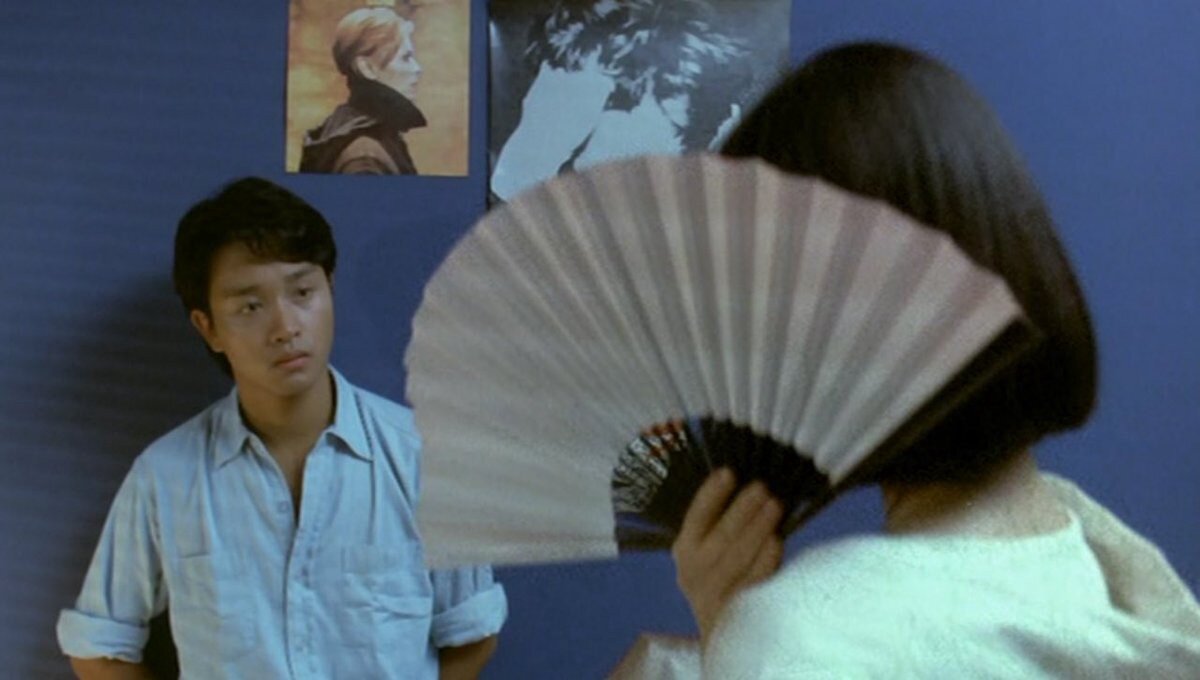Prior to the New Wave, Hong Kong’s film industry was already world-renowned for kung-fu action flicks. In fact, it’s important to note that Hong Kong had such a thriving filmmaking culture that it was the only industry thought to be able to contest against Hollywood at the time. It was still uncommon for Chinese households to have a TV set in the 1970s, and the comparatively liberal culture of Hong Kong allowed the industry to produce films that were less censored that those created on Mainland China. However, there was still a sense among young filmmakers that the industry had become formulaic. This led the likes of Tsui Hark, Ann Hui, and Patrick Tam to challenge the industry’s norms, kick-starting the Hong Kong New Wave in 1979.
How the Hong Kong New Wave began
Image: NOMAD (CREDIT: CENTURY MOTION PICTURE)
Many directors of the Hong Kong New Wave studied overseas, and were therefore bringing some westernised approaches to cinema to the East. In fact, the new wave bridges East and West in a way that could perhaps only have happened in Hong Kong, given the Island's complicated political history as a British colonial city for 157 years. This unique and now-iconic blend of eastern and western principles towards filmmaking makes the Hong Kong New Wave instantly recognisable.
Although Hong Kong's new wave is less aesthetically defined than other movements, the term is used to express a broader influence outside of mainstream Chinese filmmaking. In this way, the movement was used to define those who weren’t following the status quo, and instead wanted to develop the industry with radical editing techniques, synchronous sound and hot-footed production crews that would shoot on-location, with or without a permit.
Despite these progressive techniques, many new wave films stay within traditional genres because films in Hong Kong were financed entirely by pre-sales. This explains why so many titles, such as Wong Kar-wai's Chungking Express and Fallen Angels, focus on cops, gangsters and delinquents, despite ultimately exploring their emotional journeys as opposed to action-based storytelling.
The Second Wave: An International Influence
Image: 'As Tears Go By' (In-Gear Films)
"This is what the difference is between Hong Kong and Chinese cinema - Chinese cinema was made for their own communities. It was for propaganda. But Hong Kong made films to entertain, and they know how to communicate with international audiences." - Wong Kar-wai
In 1984, the movement embraced a ‘second wave’, where directors such as Stanley Kwan, Mabel Cheung, Peter Chan, Fruit Chan, Tammy Cheung, Alex Law and Wong Kar-wai garnered international attention for continuing to challenge the frameworks of Hong Kong cinema. Among these, director Wong Kar-wai has emerged to become the most acclaimed, winning the Palme D’or at Cannes Film Festival in 2001 for In the Mood for Love and boasting an incredibly devoted worldwide following. (Source)



